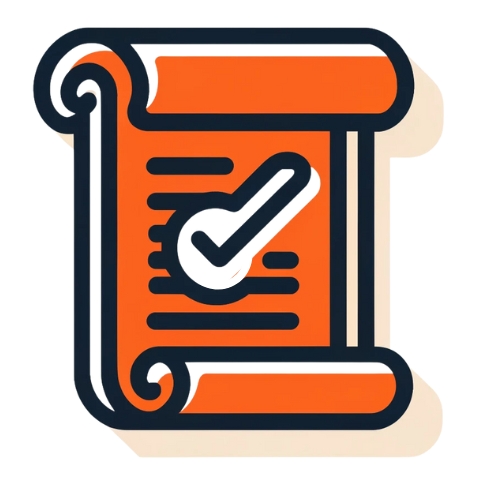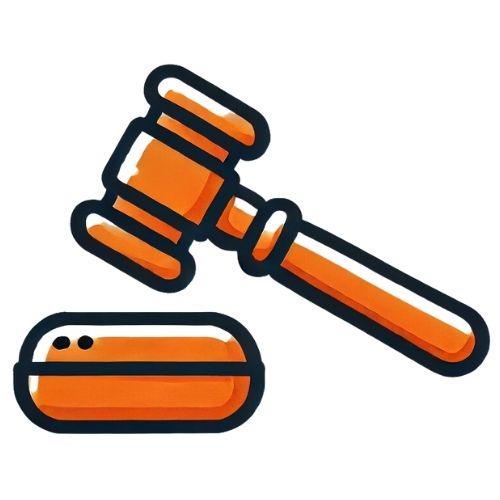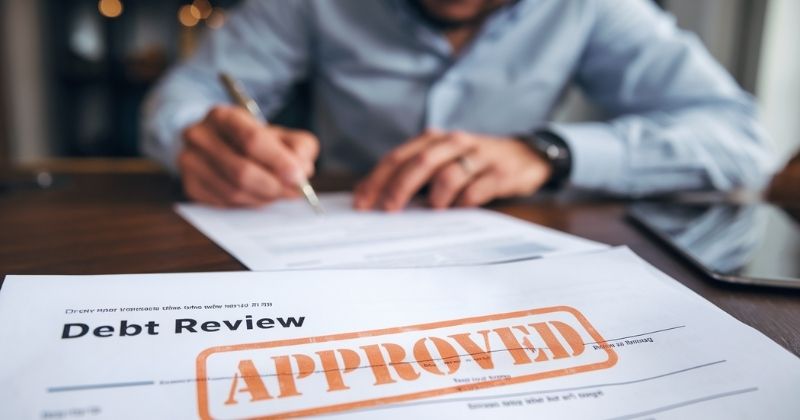
Withdrawing from debt review can be a complicated process, as it requires following specific legal regulations. If you’re currently under debt review but are considering withdrawal due to changes in your financial situation or a shift in outlook, it’s important to understand that this decision is not simple. Once the court has declared you over-indebted and placed you under debt review, only a judge can reverse that decision. This involves a lengthy legal procedure, and removing the debt review status from your financial record requires careful compliance with the necessary steps.
Key Takeaways
- Withdrawing from debt review: This involves a detailed legal process, including obtaining a court order. The procedure can be time-consuming and requires sufficient evidence to prove that you are no longer over-indebted. Only once the court is satisfied with your financial documentation can the debt review status be removed.
- Exiting debt review: This means resuming full payments as originally agreed with your creditors. Upon leaving debt review, you will no longer have the legal protection it offers, which may expose you to legal action by creditors if you fall behind on payments.
- Obtaining clearance from debt review: Once all outstanding debts are fully repaid, you will need to obtain a clearance certificate from the court. This certificate is necessary for updating your credit profile and confirming that you are no longer under debt review, helping to restore your credit standing.
About Arcadia Finance
Easily secure your loan with Arcadia Finance, no application fees and a choice of 19 trusted lenders, all fully compliant with South Africa’s National Credit Regulator. Experience a hassle-free process with solutions tailored to your financial requirements.
What is a Debt Review?
Debt review is a structured process where a debt counsellor negotiates with your creditors to adjust the terms of your repayments, often resulting in lower monthly payments while extending the repayment period. This approach offers financial relief and protection from legal proceedings, as long as no legal action was initiated before you applied for debt review.
In addition to helping you manage your current financial situation, the process provides valuable lessons on managing your finances and debt more effectively in the future.
Many consumers regret entering debt review due to its long-term restrictions. If you’re wondering whether you can exit the process, make sure to read Why Debt Review Isn’t Always the Ideal Solution to learn why it may not be the best option to begin with.

Can You Leave Debt Review Early in South Africa?
You can potentially leave debt review ahead of schedule, but the process is not straightforward and involves specific conditions and risks. Debt review is a legal process aimed at helping over-indebted South Africans manage their financial obligations. While early exit is allowed in certain cases, it must be approached carefully to avoid potential negative consequences.
Conditions for Leaving Debt Review Early

Settling All Debt: The simplest way to exit debt review is by paying off all your outstanding debts. Once all debts included in the review have been fully settled, your debt counsellor can issue a clearance certificate, which officially removes you from the debt review process.

Court Order: Another option is to apply for a court order to exit debt review early. This can be done if your financial situation has improved significantly, and you can demonstrate this to the court. However, this process can be complicated and expensive, as it requires legal assistance to have the debt review order rescinded.

Voluntary Withdrawal Before Court Application: If you entered the debt review process but haven’t reached the stage where a court order has been issued, you can voluntarily withdraw by notifying your debt counsellor. This option is only available if no court order has yet been granted to formalise your debt review.
Understanding how debt review works in South Africa can help you make the best decision for your financial future. If you’re thinking about exiting early or just getting started, it’s essential to understand the rules, benefits, and potential risks involved.
Challenges and Risks
Credit Bureau Listing
If you exit debt review without settling your debt, your credit profile may still reflect a negative status. Your “under debt review” listing will remain with credit bureaus, limiting your ability to obtain new credit.
Debt Collection
Leaving a debt review before paying off your debts allows creditors to resume legal action against you. This could include repossession of assets or garnishee orders on your salary, which can have serious financial consequences.

Before the Debt Review Removal Process
Before starting the process to exit debt review, there are several important factors to consider. It’s essential to fully understand these points to ensure you’re prepared for the transition and can manage your financial obligations once you leave debt counselling.
- Reduced Instalments Will No Longer Apply: Upon leaving debt review, any repayment arrangements set by your NCR-registered debt counsellor that reduced your monthly instalments will be nullified. This means you’ll need to resume making the full monthly payments to each creditor, as originally outlined in your credit agreements.
- Waived Fees Will Be Reinstated: During debt review, your counsellor may have negotiated with creditors to waive certain fees, penalties, or interest charges. After exiting debt review, these waivers will no longer apply, and you’ll be responsible for paying any previously waived fees in addition to your regular monthly repayments.
- Creditors Can Resume Legal Proceedings: Once you leave debt review, the legal protection it provides will no longer be available. This means creditors are free to take legal action to recover any outstanding amounts, which could result in additional legal costs, wage garnishments, or other financial penalties.
If you’re nearing the end of your debt review process, obtaining your Debt Review Clearance Certificate is the final step. Ensure you know the importance of this document and how to get it.
How to Withdraw from Debt Review
Withdrawing from debt review involves several mandatory steps, and legal assistance is necessary, as debt counsellors cannot finalise the process. The specifics of withdrawal will depend on your financial situation and whether your debts have been settled. Since being under debt review means you were previously declared over-indebted, certain formalities must be followed.
Steps to Withdraw from Debt Review:
- Notify Your Debt Counsellor
Begin by informing your debt counsellor of your intention to withdraw. They will assess whether you are still considered over-indebted. However, the final decision is made by a Magistrate, not the counsellor.
- Court Application
You’ll need to apply to the court to have your over-indebted status rescinded. This requires submitting comprehensive financial documentation proving that your financial situation has improved and that you are no longer over-indebted.
- Magistrate’s Decision
The Magistrate will review your documents and make the final determination. If they agree that you are no longer over-indebted, they will issue a court order. This order will be sent to your debt counsellor, who will forward it to relevant financial institutions to remove your debt review status.
- Legal Fees and Costs
You will be responsible for covering any legal fees and other costs incurred during the process. It’s also important to understand that there is no guarantee your request will be successful, as the Magistrate’s decision depends on their evaluation of your financial position.
It is important to understand that any legal fees or other costs arising from this process will be your responsibility. Additionally, there is no absolute assurance that your attempt to withdraw from debt review will be successful, as the final decision depends on the Magistrate’s evaluation of your current financial standing.

Guidance on Exiting Debt Review
Debt review is a structured approach to managing and eventually eliminating your debt, offering legal protection while working towards financial stability. However, it requires careful adherence to the repayment plan and a commitment to improving your financial standing. Here are important considerations to keep in mind:
Key Steps to Successfully Navigate Debt Review
| Key Steps to Successfully Navigate Debt Review | Details |
|---|---|
| 1. Follow Your Repayment Plan | It’s important to follow the repayment plan agreed upon with your debt counsellor and creditors. Timely payments are key, as missing even a single payment can result in losing the legal protection offered under debt review, leaving you vulnerable to creditor actions. |
| 2. Pay More When Possible | If you have access to extra income, whether from a second job or other sources, it’s beneficial to contribute more than the required amount. This can help reduce the time it takes to repay your debts, allowing you to exit the debt review process sooner. |
| 3. Understand the Debt Review Exit Process | – Before Court Involvement: If you wish to exit debt review before the court process, it must be done before your debt counsellor issues Form 17.2. Once this form is issued, the debt review becomes legally binding. – After Form 17.2: After Form 17.2 is submitted and a court order rearranges your debt, you are obligated to continue in the process until you meet the conditions for exiting debt review. To exit, all debts (except home loans) must be fully repaid. – Home Loans: You don’t need to pay off your home loan entirely to exit debt review, but you must ensure the payments are up to date according to the terms of the debt review order. |
| 4. Obtain a Clearance Certificate | When all debts have been paid off completely (or brought up to date for home loans), you can apply for a clearance certificate from your debt counsellor. This certificate is required for the removal of your debt review status from your credit profile by the National Credit Regulator (NCR). Keep a copy as proof that you are no longer under debt review and have regained creditworthiness. |
Restore control over your finances
Once you’ve regained control of your finances, it’s important to handle credit carefully to avoid slipping back into unnecessary debt. Managing debt responsibly allows access to credit options such as vehicle finance, home loans, credit cards, or overdrafts, all of which can be useful in reaching your financial goals. The key to this is sound financial management.
Conclusion
Withdrawing from debt review is a major decision that entails a complex legal process, necessitating thorough preparation and a clear understanding of the consequences. It is important to ensure that all required financial documentation is ready and that you fully comprehend the responsibilities associated with resuming complete payments to creditors. Although exiting debt review can improve your financial standing, it also eliminates the legal protections that guard against creditor actions, making responsible financial management essential moving forward. Obtaining a clearance certificate is the final step, confirming that your debts are settled and enabling you to rebuild your credit profile.
Frequently Asked Questions
Yes, you can exit debt review, but it requires legal intervention. A Magistrate must determine that you are no longer over-indebted for you to leave the process. If your debts are still unpaid, the court is unlikely to approve your exit from debt review.
When you exit debt review, your credit profile will no longer reflect the protections of the debt review process, and you will need to manage your debts independently. Your credit record will only be updated to remove the debt review status when all debts have been paid off completely and you have obtained a clearance certificate.
No, once you leave debt review, the reduced repayment agreements negotiated by your debt counsellor will no longer be valid. You will be required to resume full payments to each of your creditors as originally agreed.
Yes, after exiting debt review, the legal protections you had during the process will no longer apply, meaning creditors can pursue legal action if you fail to meet your repayment obligations.
To officially withdraw, you must notify your debt counsellor and seek legal assistance. The court must issue a ruling confirming that you are no longer over-indebted, based on your financial documentation, before your debt review status can be removed.
Fast, uncomplicated, and trustworthy loan comparisons
At Arcadia Finance, you can compare loan offers from multiple lenders with no obligation and free of charge. Get a clear overview of your options and choose the best deal for you.
Fill out our form today to easily compare interest rates from 19 banks and find the right loan for you.


